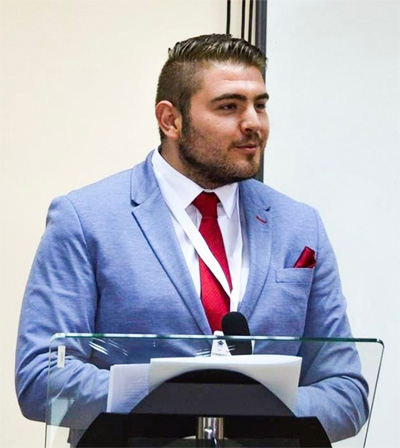 The system does not allow changing the status quo. It does not need any peaks and exceptions that may become norms in the course of time, Bulgaria’s former Ambassador to Russia Ilian Vassilev said in a comment about that country’s education. There are a few reasons for such thesis, because the problems in Bulgaria’s education system have been accumulated for years and there is a lack of long-term solutions. The changes, if any at all, have undergone a facelift, in order to distract public attention from the flaws and quite often remain in the field of public secret. No debates on these changes have been held and the talks end with ascertainments only.
The system does not allow changing the status quo. It does not need any peaks and exceptions that may become norms in the course of time, Bulgaria’s former Ambassador to Russia Ilian Vassilev said in a comment about that country’s education. There are a few reasons for such thesis, because the problems in Bulgaria’s education system have been accumulated for years and there is a lack of long-term solutions. The changes, if any at all, have undergone a facelift, in order to distract public attention from the flaws and quite often remain in the field of public secret. No debates on these changes have been held and the talks end with ascertainments only.
Three young Bulgarians Martin Penchev, Marin Dandarov and Kazim Medev who refused to put up with apathy established their own association named Leaders for European Education (leobulgaria). They offer through that association real changes to the system of university education that will benefit students and lecturers, because these two groups are the education’s main engine. On this occasion Martin, Marin and Kezim organized the EDU 17 conference that will be held on September 26. We learn more details about the event from Martin Dandarov:
 “The conference aims at showing another point of view towards education- that the problems of that field are in the legislative base, the structure of the financing and the autonomy of the universities and their rectors. Nobody will pay attention to us until we start talking about those problems. We invited representatives of the non-governmental organization Save Sofia who will speak about the problems in the Students’ Town in Sofia and the possible solutions to these issues. We also invited Professor Dobrin Todorov who published several months ago his book named University Crisis in Bulgaria. We sent an invitation to the former Minister of Education and Science and Rector of New Bulgarian University Sergey Ignatov who has something to say on the issues related to the university education in Bulgaria. In one of the discussion panels representatives of leobulgaria will voice their opinion about the state of the country’s university education, share some ideas that have to be implemented immediately, in order to yield quick results and tell us how their imagine Bulgaria’s education in eight years. We want to initiate a debate on the University Education Act, the accreditation methodology, as well as on issues related to financing, subsidies, student self-government and the work of the student councils.”
“The conference aims at showing another point of view towards education- that the problems of that field are in the legislative base, the structure of the financing and the autonomy of the universities and their rectors. Nobody will pay attention to us until we start talking about those problems. We invited representatives of the non-governmental organization Save Sofia who will speak about the problems in the Students’ Town in Sofia and the possible solutions to these issues. We also invited Professor Dobrin Todorov who published several months ago his book named University Crisis in Bulgaria. We sent an invitation to the former Minister of Education and Science and Rector of New Bulgarian University Sergey Ignatov who has something to say on the issues related to the university education in Bulgaria. In one of the discussion panels representatives of leobulgaria will voice their opinion about the state of the country’s university education, share some ideas that have to be implemented immediately, in order to yield quick results and tell us how their imagine Bulgaria’s education in eight years. We want to initiate a debate on the University Education Act, the accreditation methodology, as well as on issues related to financing, subsidies, student self-government and the work of the student councils.”
The concrete proposals of the organizers are linked with the settlement of the statute of the student Ombudsman, the rights and the duties of the students and the opportunity to be employed at their university during their studies. Thus, they will gain practical experience and knowledge that cannot be found in any textbook. The participants at the event will discuss whether students can be allowed to choose their subjects and lecturers. Thus, they can solve their problems related to visits to lectures and exercises. Moreover, competition between lecturers will increase. The use of some university subjects, which became mandatory at the will of the lecturers only, will be also evaluated. The Leaders for European Education (leobulgaria) insist that the workload of some subjects taught at school must be recognized at the university, too. The young Bulgarians contends that the university should teach students basic skills that are at the base of different professions, thus allowing them to be more flexible and mobile on the labor market.
There is a high and tangible deficit of initiatives linked with improving Bulgaria’s academic environment and tackling illegal practices. However, such initiatives must receive public support, because each cause needs time, people and publicity to bring about change.
English version: Kostadin AtanasovThe Bulgarian minority in Romania marked a significant event with the official opening of the Bulgarian Inn in the village of Izvoarele (Hanul Bilgarilor), Teleorman County (Southern Romania)- a locality with Bulgarian roots dating back over 200 years...
The 14th edition of DiVino.Taste, Bulgaria’s leading forum for wines and winemakers, will take place from 28 to 30 November at the Inter Expo Centre in Sofia. Over 80 producers from all wine regions will participate, offering tastings of around 600 of the..
Minutes before the second and final reading, at the parliamentary budget and finance committee, of the state budget for 2026, the leader of the biggest party represented in parliament GERB Boyko Borissov halted the procedure and sent the draft bill..

+359 2 9336 661
